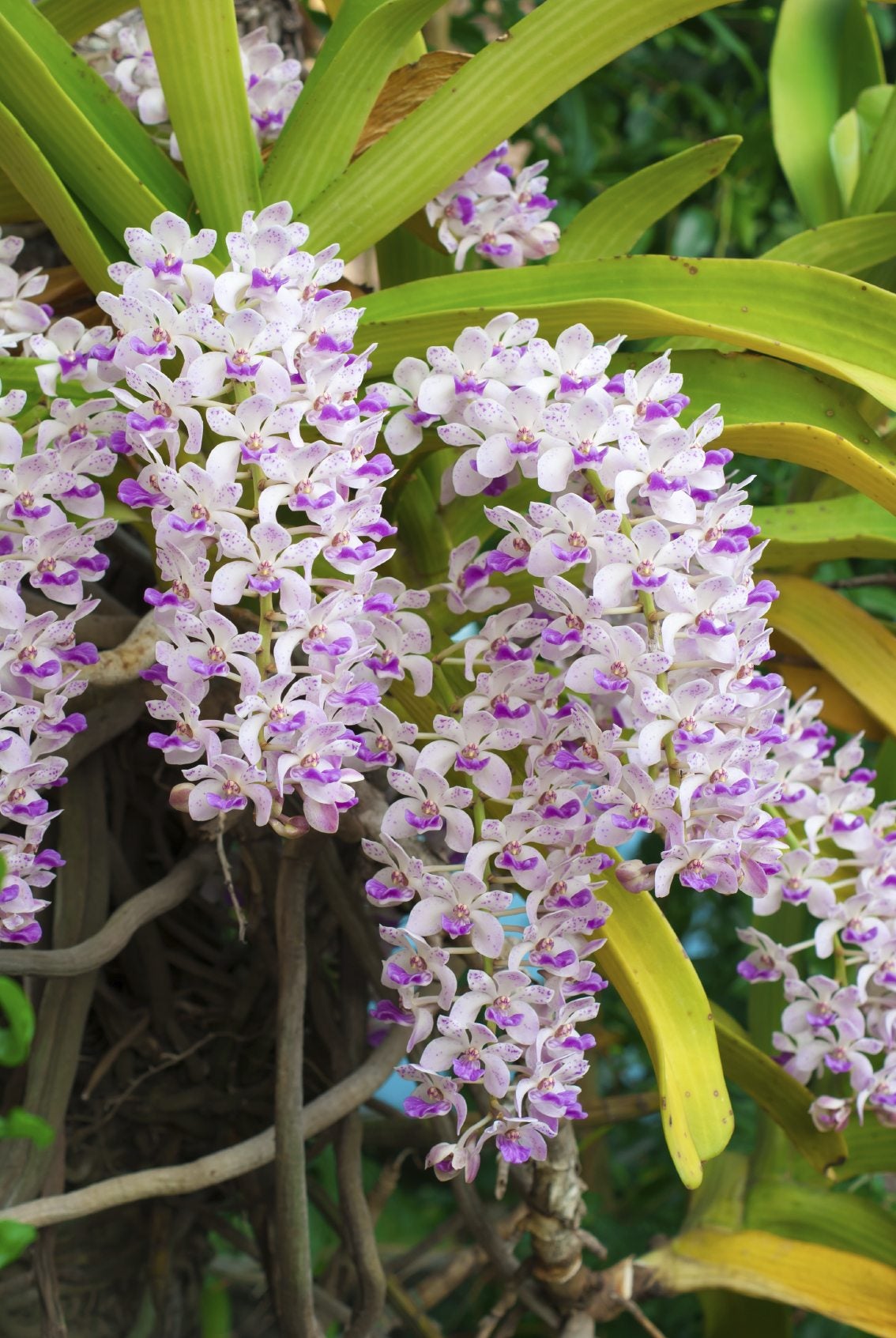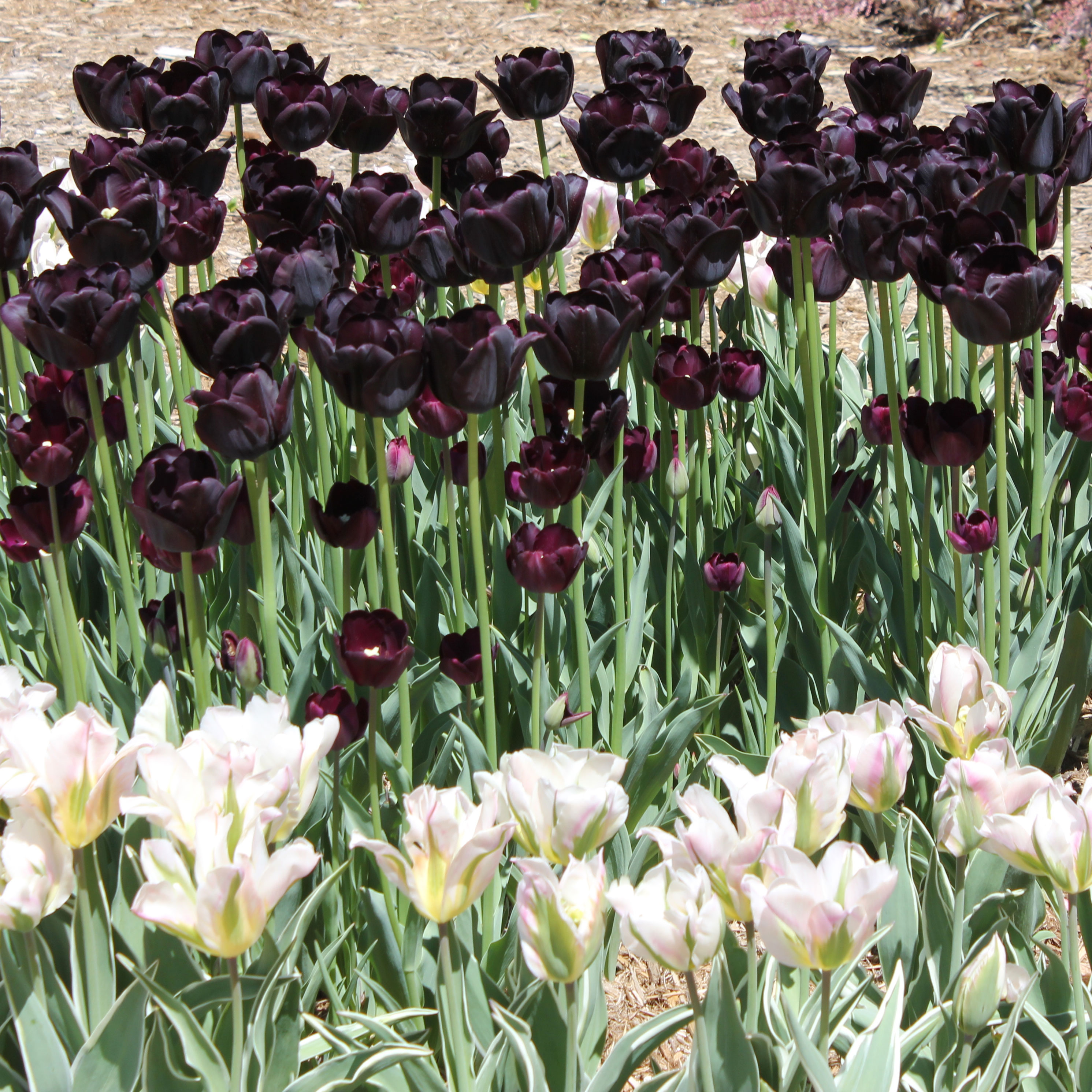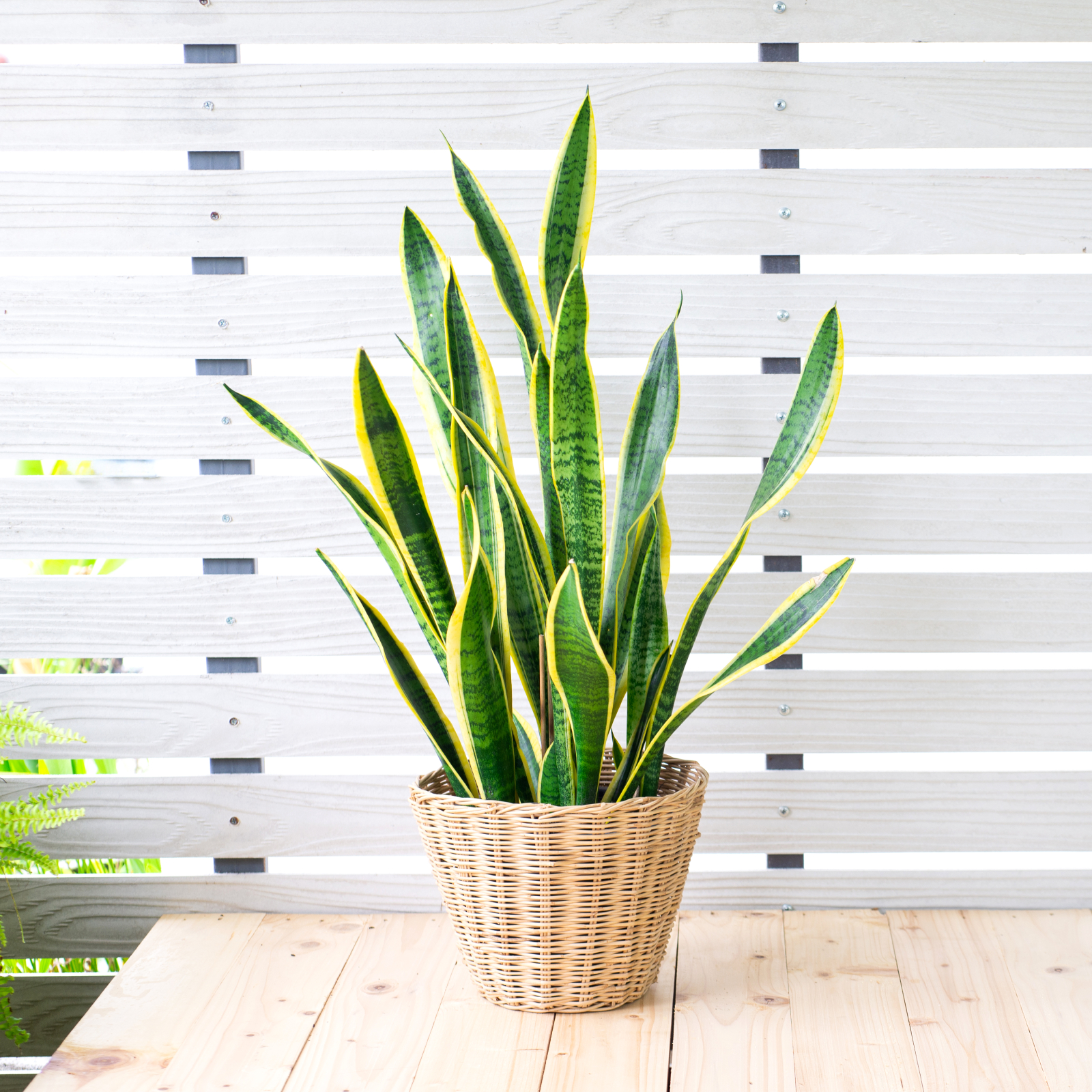Rhynchostylis Orchids: Tips On Growing Foxtail Orchid Plants


Foxtail orchid plants (Rhynchostylis) are named for the long inflorescence that resembles a fluffy, tapering fox tail. The plant is distinctive not only for its beauty and unusual range of colors but for its spicy aroma that is released in the evening when temperatures are warm. Read on to learn more about growing and caring for Rhynchostylis orchids.
How to Grow Rhynchostylis Foxtail Orchid
Growing foxtail orchids isn’t difficult and is largely a matter of replicating the plant’s natural environment. Rhynchostylis orchids are epiphytic plants that grow on tree trunks in warm, tropical climates. Foxtail orchid plants don’t do well in direct sunlight, but they thrive in filtered or dappled light. However, they can tolerate brighter indoor light during the fall and winter. The plants do well in clay pots with side drainage, or in wooden baskets filled with plenty of chunky bark or lava rocks that won’t break down easily. Keep in mind that the plant doesn’t like to be disturbed, so use media that will last four or five years to prevent frequent repotting. Preferably, don’t repot the orchid until the plant begins to grow over the sides of the container.
Foxtail Orchid Care
Humidity is critical and the plant should be misted or watered daily, especially Rhynchostylis orchids that are grown indoors where the humidity is low. However, be careful not to let the potting media remain soggy; overly wet soil can cause root rot, which is usually fatal. Water the plant thoroughly with lukewarm water, then allow the pot to drain for at least 15 minutes before returning the plant to its drainage saucer. Feed Rhynchostylis foxtail orchids every other watering, using a balanced fertilizer with an NPK ratio, such as 20-20-20. During the winter the plant benefits from a light feeding every three weeks, using the same fertilizer mixed to half strength. Alternatively, feed the plant weekly, using a fertilizer mixed to one-quarter strength. Don’t overfeed and be sure to fertilize your orchid after watering, as fertilizer applied to dry potting media can burn the plant.
Gardening tips, videos, info and more delivered right to your inbox!
Sign up for the Gardening Know How newsletter today and receive a free copy of our e-book "How to Grow Delicious Tomatoes".

A Credentialed Garden Writer, Mary H. Dyer was with Gardening Know How in the very beginning, publishing articles as early as 2007.
-
 Moody Blooms For Spring: 8 Types Of Black Flowers To Add Drama To Spring Displays
Moody Blooms For Spring: 8 Types Of Black Flowers To Add Drama To Spring DisplaysFrom midnight burgundies to inky violets, several types of black flowers can enrich and embolden a spring display. Try these brooding bloomers for a moody garden
By Tonya Barnett
-
 Can Snake Plants Live Outside? Everything You Need To Know For Snake Plants Al Fresco
Can Snake Plants Live Outside? Everything You Need To Know For Snake Plants Al FrescoSnake plants can live outside given the right conditions, but be careful that they don't take over! Learn the best way to use snake plants in your landscape.
By Mary Ellen Ellis